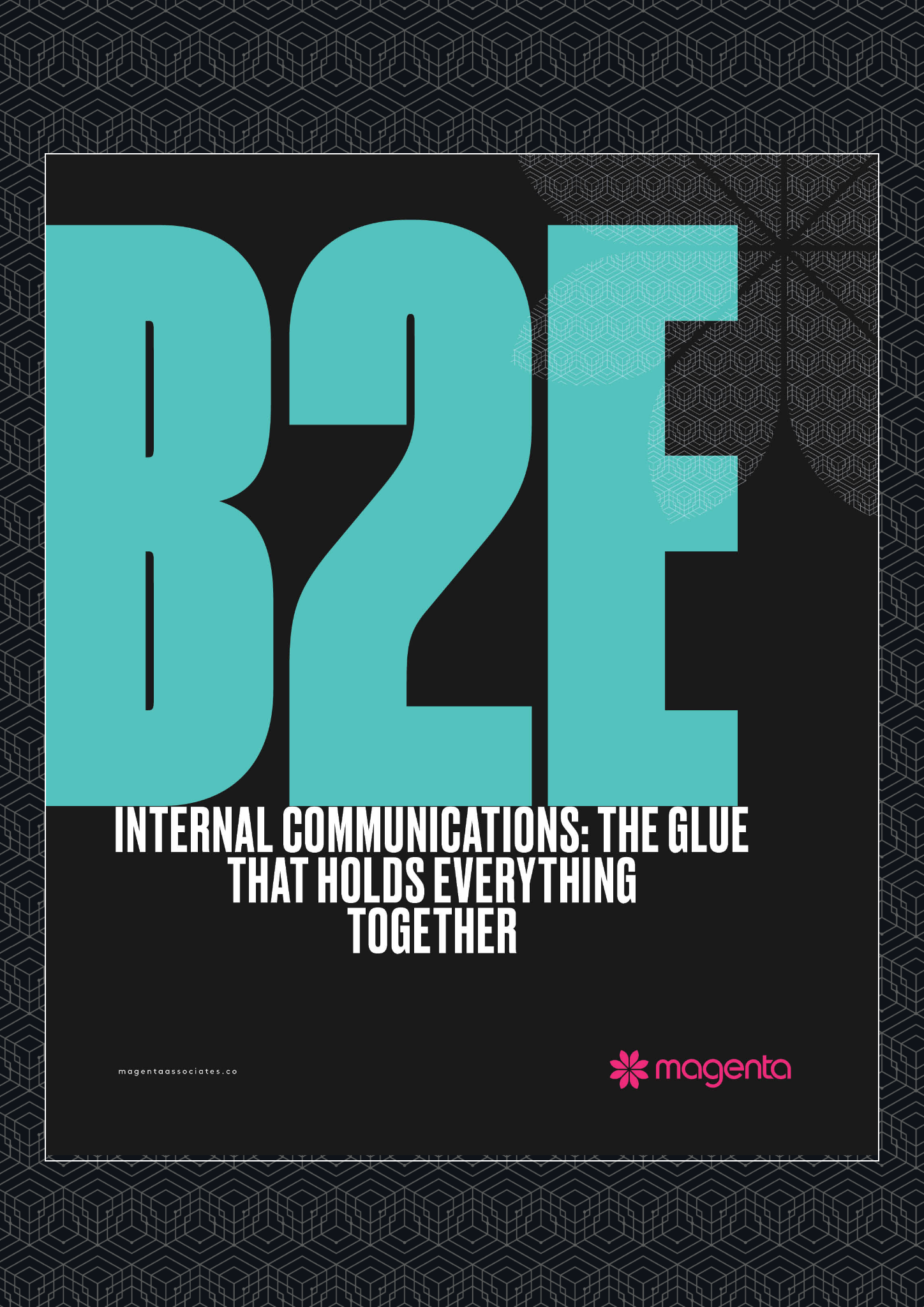An internal communications strategy is critical to keep staff informed, happy and engaged
Internal communications is how a business communications with its staff. While many companies focus on communicating with its customers, not as many have a defined strategy for internal communications – but it’s just as important.
Magenta has a dedicated service to support businesses. Check out our business-to-employee (B2E) communications page for more information.
What should be in an internal communications strategy?
The information a business needs to communicate to its employees is vast. Key areas include:
- Leadership comms
- Recruitment messaging
- Learning & development
- Recognition schemes
- Benefits
- Pension news
- HR news
- Brand guidelines
- Employee surveys
- Operational change
- Strategic change
There is no one-size-fits-all approach to internal communications as a strategy will vary by business sector and company size, among other factors.
How you communicate is also a key part of a strategy. With many businesses now operating a hybrid work model, there may be very few days when everyone is in the same physical workplace. Furthermore, communications preferences will vary by employee. With a host of communications platforms to choose from, make sure you find the ones that work best for your staff. This can include emails, Teams, WhatsApp, Slack..and of course, face-to-face!
Good internal communications can inspire
We surveyed 2,000 employees and fewer than 50 per cent described their employer as a good communicator – and 17 per cent would actively describe their employer as a bad communicator. Poor comms can lead to a loss of engagement and loyalty, while strong comms can inspire ideas and innovation.
to discuss how Magenta can help you.

With many organisations in the process of redefining, refining or even reimagining the employee experience on offer, more attention needs to be paid to how workplace change, whatever that change looks like, is managed and communicated.
That process can make or break a workplace strategy and the employee experience that goes with it.
Download our free report into why internal communications is so important.
Words matter. Precision matters. Shared ideas matter. Engagement matters. And they especially matter when it comes to communicating change to an increasingly diverse and dispersed workforce.
Latest Case Studies

Case study: Kam Singh and EMCOR UK
Our client EMCOR UK sought to further strengthen awareness of its position as a leader in sustainable carbon management. Central to this effort was ESG

Internal comms case study: Unravelling what employees really think
One of our facilities management clients with multiple service lines and dispersed teams was concerned that some employees may not feel part of the company’s

University of Sussex case study: building a procurement blueprint
In advance of the University of Sussex’s first-generation outsourcing programme for its facilities management and catering, conferencing and banqueting services, Magenta was commissioned to run
Latest News & Views

Search forward: Oluwatobi Folasade Balogun Q&A
In our fifth Search forward Q&A, I spoke with Oluwatobi Folasade Balogun, co-founder and CEO at SustainWyse, about how AI is reshaping discoverability, brand strategy,

Beyond the plaque: How we’re living our B Corp values every day
When we announced our B Corp certification, the response was amazing. The plaque looked great, the LinkedIn love poured in, and we all took a

Momentum for the Better Business Act
Last week, under a stretch of blue, sunny sky, the B Corp community gathered at Joelson Law in London for a Better Business Day B









